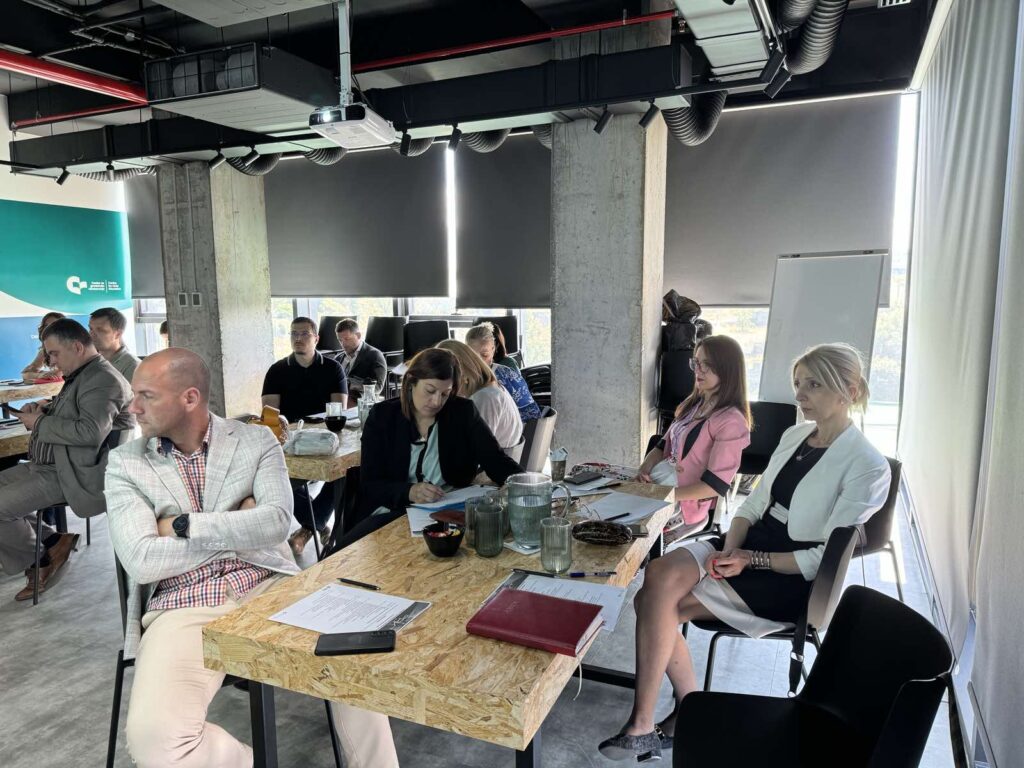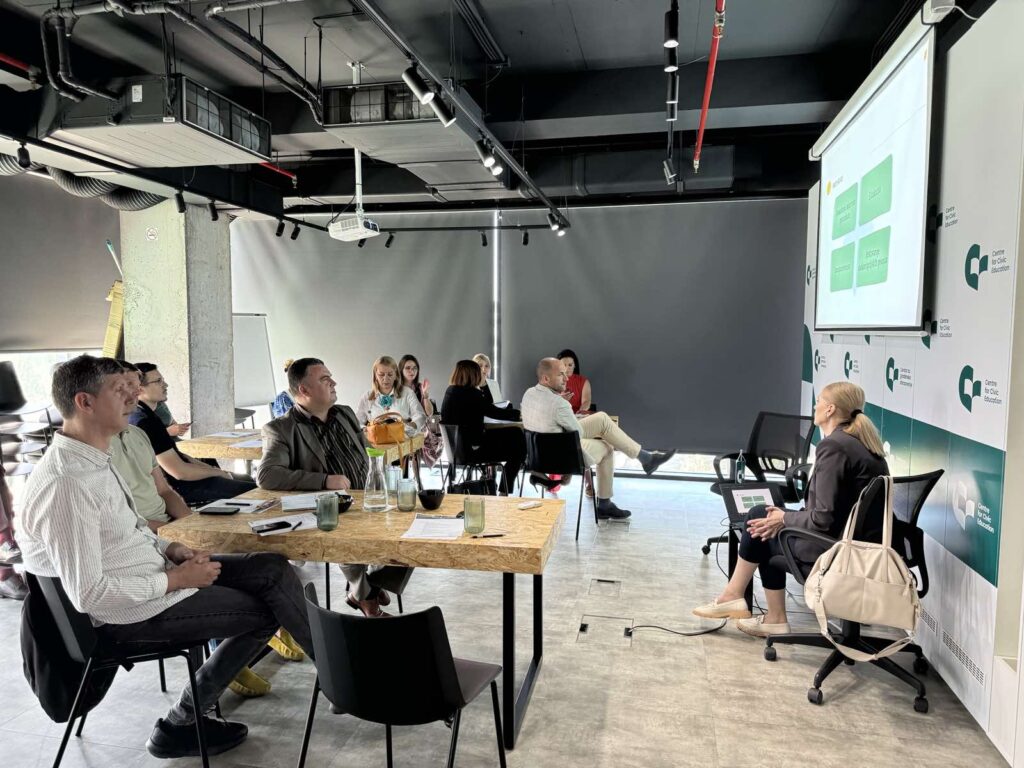Centre for Civic Education (CCE), today, organized the second in a series of five training sessions on mechanisms to combat corruption, specifically for representatives from the education system.
During the training, participants were thoroughly acquainted with anti-corruption policies, including integrity plans, whistleblower protection, conflict of interest, risk understanding and management, and asset declarations, with the aim of applying the acquired knowledge in their work and thereby strengthening this important component of the functioning of all institutions.
“From my position in this institution, as well as being a lawyer, I recognize the importance of this topic, especially regarding the complications that can arise in our work. The trainers were exceptional. I would particularly highlight Boris Vukašinović, who, through open communication, provided insights that significantly contribute to quality – the exchange of experiences and moving beyond theory, as practice is very significant,” assessed Stefan Rabrenović, Secretary of the Institute for Textbooks and Teaching Aids and one of the programme participants.
Marica Melović from the Ministry of Education, Science and Innovation emphasized the significance of training for state bodies in adopting and implementing integrity plans as an excellent instrument for preventing corruption. “Detailed explanations of developing and implementing integrity plans during the training were very useful for future work. Additionally, I believe that it was extremely important for all of us to understand the importance of income and asset reports for public officials, along with overcoming obstacles in their processing. The focus on practical problems, key legal provisions, and fair application was noteworthy. The interaction between lecturers and participants created a synergistic effect of knowledge and experience exchange” stated Melović.
“I was already familiar with most of the material presented. However, I believe that additional specific topics or more advanced material could provide even greater value in the future. Nevertheless, the training gave me insight into how the APC operates and provided an opportunity to discuss best practices with representatives of the Agency that could be applied in my organization’s work”, said Mirko Gajović, Head of the Office for Academic and General Affairs at the University of Montenegro Rectorate.
The goal of this series of trainings across different sectors (education, healthcare, local administration, security, and justice) is to increase awareness and enhance the planning and implementation processes of anti-corruption policies by public officials, while adhering to ethical standards.
The training is organized within the framework of the PACT Against Corruption (Partnership Against Corruptive Tendencies) project, supported by the Embassy of the US Embassy in Montenegro, the Bureau of the State Department Bureau for International Narcotics and Law Enforcement (INL) and implemented by the CCE in cooperation with the Agency for Prevention of Corruption (APC), whose representatives were also the lecturers today.
Maja Marinović, Programme Associate


